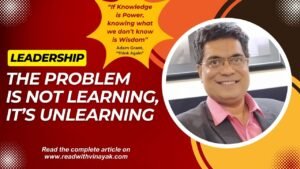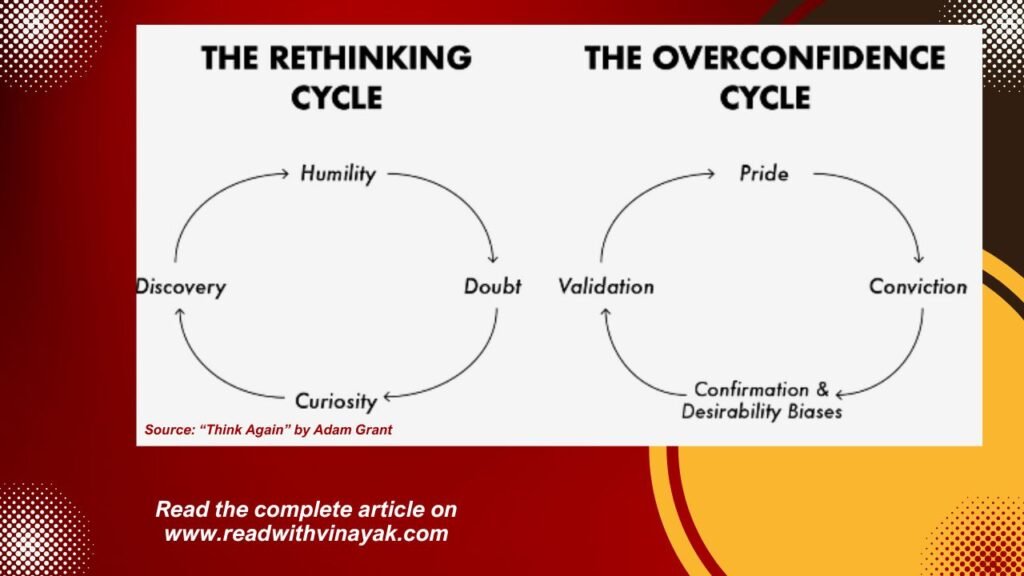 “Leadership and Learning are indispensable to each other” is a quote taken from John F. Kennedy’s final undelivered speech, intended for that fatal day at Dallas in 1963. I am not too sure if this statement was intended for political leaders of those times or the Business leaders. Whomsoever this may have been intended for, given the timeline when this was said, I would term this as a visionary statement with a profound meaning that emphasizes the importance of continuous learning for people in leadership roles.
“Leadership and Learning are indispensable to each other” is a quote taken from John F. Kennedy’s final undelivered speech, intended for that fatal day at Dallas in 1963. I am not too sure if this statement was intended for political leaders of those times or the Business leaders. Whomsoever this may have been intended for, given the timeline when this was said, I would term this as a visionary statement with a profound meaning that emphasizes the importance of continuous learning for people in leadership roles.
This 1963 saying of Kennedy needs calibration, to suit the present-day era spanning over two decades, mostly after 2000, that has seen tectonic changes in Business environment, technology, Legislation and regulations, etc. Business models have shifted from traditional linear or pipeline frameworks to platform-based models, a characteristic of the digital era that we live in. As a result, it is imperative for leaders of today, not just to stay abreast with these rapid changes through ongoing learning but also to unlearn outdated concepts and methods more frequently than ever before.
What do the Thinkers say?
Several prominent thinkers have emphasized the importance of unlearning and relearning. In the words of Alvin Toffler, a futurist & philosopher, “The illiterate of the 21st century will not be those who cannot read and write, but those who cannot learn, unlearn, and relearn.”
Mark Bonchek, founder and Chief Epiphany Officer of Shift Thinking, in his article “Why the Problem with learning is unlearning” (Published on 3rd Nov 2016) for Harvard Business Review has said, we have been focusing on the wrong thing!! The problem isn’t learning, it’s unlearning!! Unlearning doesn’t mean forgetting; rather, it involves the capacity to select a different mental framework or perspective. Learning equates to augmenting our existing knowledge or skills. In contrast, unlearning entails moving beyond our current mental framework to embrace an alternative one.
Liz Alexander, a futurist, believes that to remain competitive, we must not only acquire new knowledge and skills, as many of us are aware, but also engage in the often-overlooked process of unlearning. This entails letting go of the skills, habits, and notions that have brought us success thus far.
Therefore, the concept of unlearning has emerged as a crucial requirement for leadership groups across various industries. This has been highlighted by David Lei and John Slocum, professors at the Southern Methodist University business school, who observe that the introduction of disruptive technologies significantly challenges the ability to abandon established methods of product development and business models.
In essence, unlearning and relearning is not a matter of choice but is more of an imperative necessity today.
If we know this, what holds us back?
In his book, “Think Again”, Adam Grant, argues that a significant issue stems from a tendency towards what he calls cognitive laziness. According to some psychologists, we act as “mental misers”: we frequently opt for the comfort of clinging to established beliefs rather than confronting the challenge of considering new perspectives. As Liz Alexander says in her article “Three ways to unlearn old habits faster”, this is a process which Psychologists call “proactive interference”. Proactive interference is a concept from cognitive psychology and memory studies, referring to the phenomenon where older memories interfere with the recall of newer memories. In simpler terms, it’s when past information makes it harder for you to remember new information. This usually happens when the information is similar.
Rethinking as an enabler of Relearning:
Adam Grant, in “Think Again”, recounts the Mann Gulch Fire tragedy, where a mere 3 of 15 firefighters survived. Among them, Dodge’s survival wasn’t due to physical prowess but mental agility. In a quick-witted move, Dodge lit a backfire to create a safe haven by eliminating fuel for the encroaching flames, hoping to secure a brief respite for strategy reassessment. Hence, Adam Grant opines that in these turbulent times, the most important cognitive skill is the ability to rethink and unlearn.
Possessing a keen intellect does not guarantee adaptability in thinking. Even those with high IQs can fail to progress with their thoughts, if they’re not open to reevaluating their beliefs, potentially missing out on refining their ideas. Intelligent individuals can sometimes be the most prone to glaring oversights, especially when faced with information that contradicts their preconceptions.
This paradox is often amplified by confirmation bias, the tendency to acknowledge only the information that aligns with our beliefs, and desirability bias, which leads us to perceive what we want to. These biases can completely misguide our intelligence away from truth-seeking.
An apt example that comes to my mind is from the Bhagavad Gita. Just before the Kurukshetra war begins in the Mahabharata, Arjuna is overwhelmed by the impending thought of entering into a battle with his own cousins, violence and casualties of the conflict. The Bhagavad Gita presents a conversation between Krishna and Arjuna, where Krishna calibrates Arjuna’s beliefs that needed the rethinking. However, this did not happen before Arjuna called himself “dharma sammudha chetah” (completely bewildered at heart) thereby humbly surrendering himself to Krishna (Bhagavad Gita, Chapter 2, Text 07).
Hence, humility is the most important part in the rethinking cycle.
Vinayak’s Takeaways
When previous knowledge hampers the brain’s ability to grasp new information, learning can slow down or grow challenging. Holding onto old, inflexible beliefs and false notions that might make you fall behind in your profession or industry, sometimes without realizing why. Becoming a strategic, lifelong learner who excels at letting go of outdated knowledge requires actively rethinking and evaluation of the success of previous approaches. Embracing a mindset of positive skepticism and working hard to challenge and overturn your own beliefs.
My thoughts resonate with Adam Grant’s philosophy which emphasizes that adapting to shifts in the environment is not something that the company engages in; it is the people and the decisions that they make on a daily basis that help the company navigate in the marketplace. Therefore, constantly reassessing and updating the approach should be integral part of the professional life.





